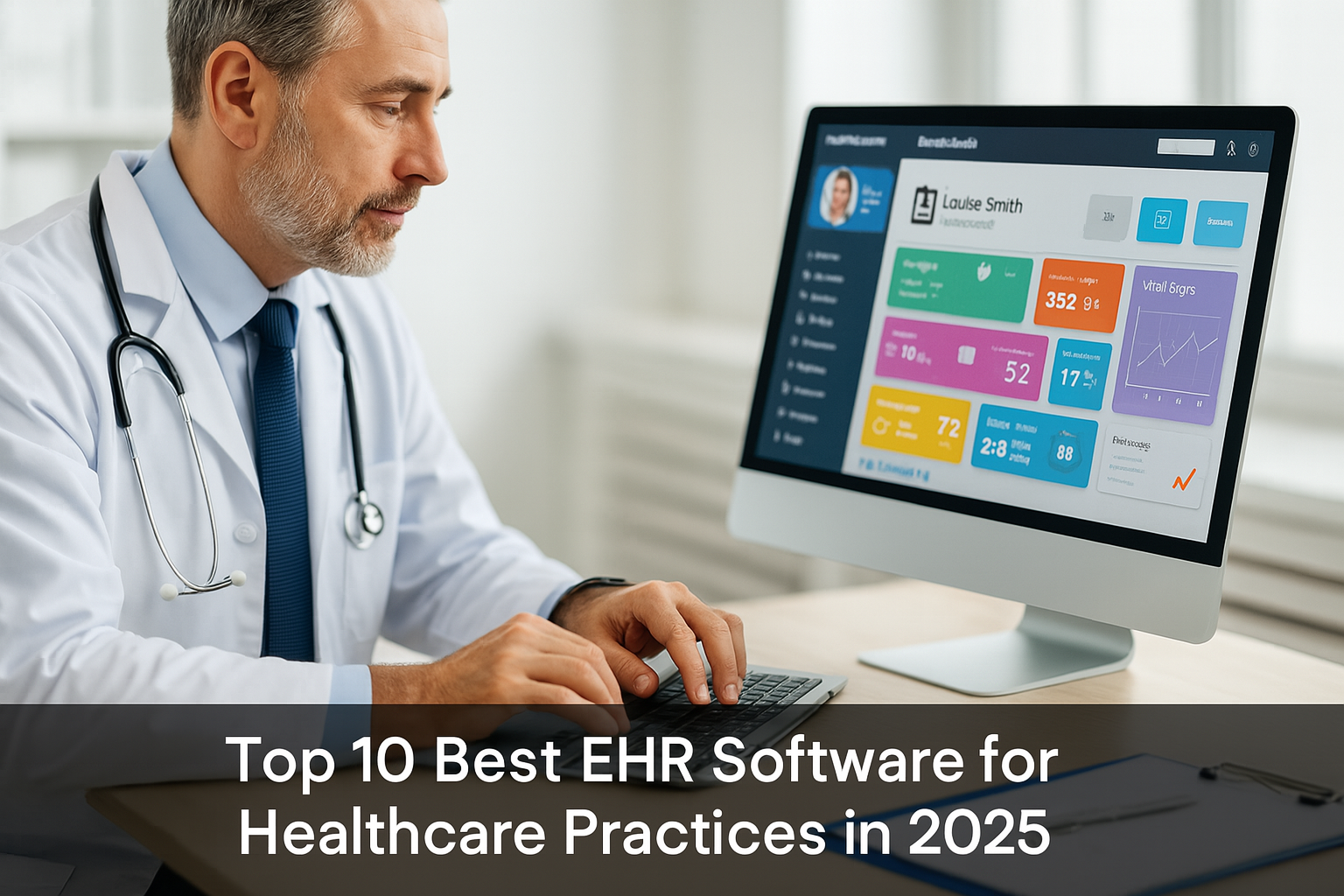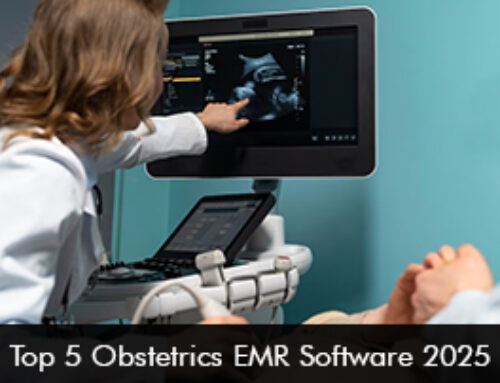As the healthcare industry continues to evolve, so do the technological tools that power it. Electronic Health Record (EHR) systems are at the heart of modern clinical practice, transforming the way healthcare providers manage patient information, deliver care, and streamline operations.
In 2025, the demand for powerful, intuitive, and interoperable EHR software has reached an all-time high. Healthcare organizations—whether large hospitals, mid-size clinics, or small private practices—are seeking solutions that can handle complex needs, improve care outcomes, and ensure compliance in a rapidly shifting regulatory landscape.
To help you navigate the options, here’s a comprehensive look at the top 10 EHR systems that are making the biggest impact in 2025.
1. Epic EHR
A titan in the healthcare tech space, Epic has long been trusted by major healthcare systems in the United States. Known for its robust interoperability and extensive network integrations, Epic supports multi-specialty practices with personalized workflows and advanced data management.
Why it stands out:
– Broad specialty support and configurability
– Rich patient portal with scheduling, messaging, and test result tracking
– Industry-leading security and compliance measures
– Powerful clinical decision support and analytics tools
Who it’s for: Large healthcare systems and networks requiring deep customization and scalability.
2. Oracle Cerner
Following Oracle’s acquisition of Cerner, this EHR giant continues to be a leading choice for enterprise-level health organizations. Its cloud-first approach, extensive analytics capabilities, and focus on population health management make it a standout performer.
Key features:
– Streamlined workflow management
– Predictive analytics for resource optimization
– Integration with third-party platforms
– Customizable modules for different specialties
Best for: Large to mid-sized hospitals looking for scalable, data-driven tools.
3. eClinicalWorks
Founded in 1999, eClinicalWorks is the largest cloud-based EHR provider in the U.S., offering a mix of clinical, administrative, and telehealth functionalities. Its seamless blend of EHR, practice management (PM), and remote care tools enhances patient outcomes and care coordination.
Highlights:
– Telehealth integration with mobile-friendly access
– Unified billing, documentation, and scheduling
– Patient engagement via messaging and mobile portals
– Flexible cloud-based infrastructure for scalability
Ideal for: Practices wanting a cost-effective, all-in-one cloud platform.
4. NextGen Healthcare
Tailored for mid-sized and ambulatory care providers, NextGen stands out with specialty-specific templates, intuitive navigation, and mobile access for providers on the move.
Why providers choose NextGen:
– Integrated PM and revenue cycle management (RCM)
– Secure patient portal with real-time communication
– Customizable EHR workflows for efficiency
– On-the-go accessibility for better provider flexibility
Best fit for: Ambulatory practices and multi-specialty clinics.
5. Practice Fusion
Geared toward small and mid-sized practices, Practice Fusion delivers a clean, user-friendly interface with cloud-based accessibility. It’s known for its fast setup, E-Prescribing, and affordability without skimping on core capabilities.
Top features:
– Easy EHR implementation and minimal training required
– E-Prescribing with pharmacy integration
– Flexible documentation templates
– Intuitive dashboards and appointment scheduling tools
Recommended for: Solo practitioners and smaller clinics seeking a budget-friendly EHR solution.
6. Allscripts (now part of Veradigm)
Allscripts, recently rebranded under Veradigm, offers a robust and user-focused EHR ecosystem. Its interoperability strengths and integrations with various apps make it a versatile pick for ambulatory and specialty clinics.
Key benefits:
– Ambient dictation and smart charting
– Real-time analytics for performance tracking
– Easy integration with third-party apps and devices
– Revenue optimization through integrated RCM
Suitable for: Clinics needing streamlined patient engagement and financial tools.
7. AdvancedMD
AdvancedMD offers a fully integrated cloud suite combining EHR, billing, telemedicine, and patient engagement. Known for its modular customization, it allows practices to scale functionalities as they grow.
Platform perks:
– Automation of claims and prior authorization
– Online payment options and eligibility checks
– Customizable dashboards for reporting
– Comprehensive support and training services
Best for: Small to medium practices looking for an adaptable and intuitive platform.
8. Meditech Expanse
Meditech’s Expanse EHR continues to make waves with mobile-first design, cloud deployment, and tight AI integration. This system is designed with usability and decision support in mind, making it a strong contender in acute care settings.
Core strengths:
– Mobile-ready solutions for clinicians on-the-go
– Natural language processing and clinical decision support
– Seamless interoperability with external health systems
– Scalable architecture for enterprise environments
Ideal for: Medium to large hospitals prioritizing advanced clinical features and mobility.
9. SimplePractice
SimplePractice is a favorite among mental health professionals and small healthcare practices. With simple billing tools, telehealth scheduling, and client communications, it delivers just the right tools without excess.
Features include:
– HIPAA-compliant virtual appointments and messaging
– Custom templates for notes and treatment plans
– Built-in insurance filing and payment collection
– Streamlined intake forms and patient onboarding
Best use case: Solo providers or therapy clinics seeking a minimalist but powerful solution.
10. DrChrono
DrChrono is designed with modern workflows in mind—its mobile-first approach and seamless integrations simplify everything from telehealth and prescribing to billing and RCM.
Top advantages:
– iPad-compatible EHR with voice-enabled charting
– RCM services and billing automation
– Virtual consultations and patient check-ins
– API support for third-party healthcare apps
Recommended for: Tech-savvy practices embracing digital-first care.
Final Thoughts
Selecting the right EHR is one of the most important decisions a healthcare provider can make. The best systems in 2025 aren’t just digital filing cabinets—they’re intelligent platforms that improve care delivery, drive practice efficiency, and enhance the patient experience.
Whether you need a comprehensive enterprise suite or a lightweight solution for a solo office, today’s EHR options offer remarkable flexibility and power. Choosing based on your organization’s size, specialty, and goals will ensure you get the most out of your technology investment.







